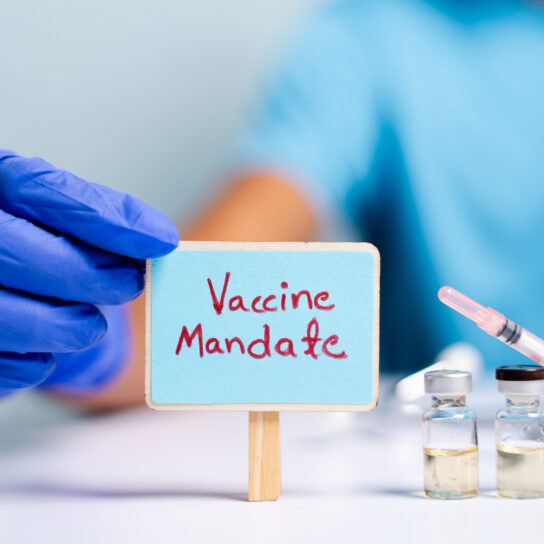The new changes to fixed-term contract requirements, as well as new obligations for employers under the Sex Discrimination Act (Cth), have now come into effect.
Byline: Elise Jasper
Our latest news and insights
A collection of articles, case studies and media releases highlighting the latest in legal news and at Rigby Cooke Lawyers.

The transport industry and labour hire — is your business exposed?
A version of this article was first published by VTA in August 2023.
It has become apparent that there is some confusion about how labour hire regulation impacts the transport industry. A business can be liable for a penalty exceeding $590,000 for using an unlicensed provider, or providing labour without a labour hire licence — so it’s important to get it right.

COVID-19 isolation rules scrapped – here’s what employers need to know
On 30 September 2022, the Prime Minister announced that National Cabinet agreed that from Friday 14 October 2022 there will no longer be a mandatory isolation period for COVID-19. Premier Daniel Andrews has announced that Victoria’s pandemic declaration will come to an end at 11.59pm on Wednesday 12 October, so mandatory isolation will end one day earlier in Victoria.

Victorian Mandatory Vaccination requirements extended under Pandemic Orders
The Victorian Government has now extended Mandatory Vaccination requirements for workers until 12 January 2022 under the new suite of Pandemic Orders1.

Changes to Victoria’s Mandatory Vaccination exemption requirements
Under the new COVID-19 Mandatory Vaccination (Workers) Directions (Directions) issued on 18 November, workers are now required to provide a current COVID-19 digital certificate as ‘acceptable certification’ to prove an exemption from the Mandatory Vaccination requirements (Vaccination Requirements).

New proof of COVID-19 vaccination medical exemption requirements in Victoria
Effective from 6pm on Friday 12 November 2021, Victorian employers must sight more than a medical certificate to establish that a worker is exempt from the mandatory vaccination requirements (Vaccination Requirements).

Are you ready for the superannuation stapling obligations starting Monday 1 November?
What is the requirement?
From Monday 1 November 2021, if a new onboarding employee does not nominate a preferred superannuation fund (using the Standard Choice Form), the employer is required to ask the Australian Taxation Office (ATO) if there is already a superannuation account linked (stapled) to that employee. If the employee has a stapled fund, the employer must make superannuation contributions to that fund rather than the employer’s default fund.

Mandatory Vaccination Directions for Victorian workers released
Following an announcement by the Premier on Friday 1 October, the Victorian Acting Chief Health Officer has now issued Mandatory Vaccination Directions (Directions) that apply to select workers1 (previously referred to as authorised workers) except those in specific industry groups of healthcare, aged care, construction and education.
